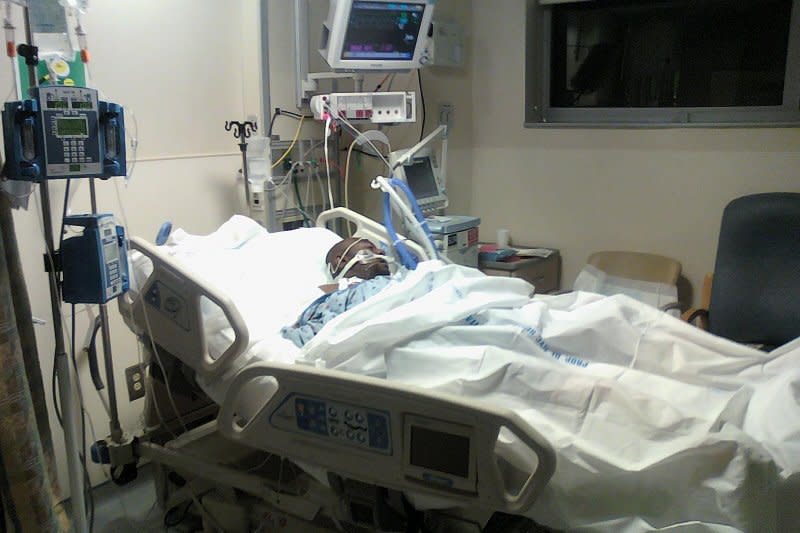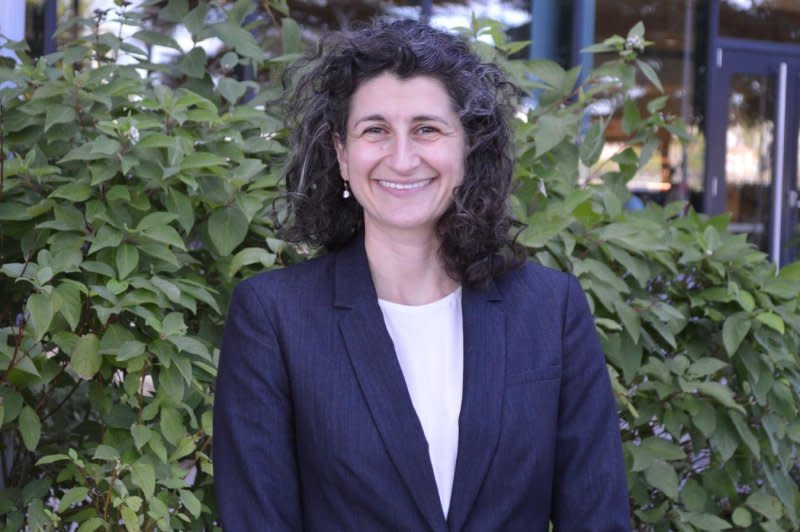Study: Brain-injured patients who died after life support ended may have recovered

NEW YORK, May 13 (UPI) -- Some patients with traumatic brain injuries who died after life support was withdrawn may have recovered if given more time, a new study indicates.
The findings of the study, conducted at Mass General Brigham in Boston, were published Monday in the Journal of Neurotrauma.
A more cautious approach is needed in making early decisions on withdrawal of life support after traumatic brain injuries, according to the researchers from Mass General Brigham, a leading biomedical research organization the includes several Harvard Medical School teaching hospitals.
"Severe traumatic brain injury -- resulting for example, from a car accident -- is a major cause of hospitalizations and deaths around the world," impacting more than 5 million people annually, the study's senior author, Dr. Yelena Bodien, an assistant professor in the department of neurology at Massachusetts General Hospital, told UPI via email.
While many people recover consciousness over a few hours or a day, others remain in the intensive care unit, relying on life support, such as a breathing tube, said Bodien, who also is an assistant professor in the department of physical medicine and rehabilitation at Spaulding Rehabilitation Hospital in Charlestown, Mass.

"Predicting who will recover following severe traumatic brain injury, and to what degree, can be challenging. Yet, families are often asked to make decisions about continuing or withdrawing life support, such as mechanical breathing, within just 72 hours of the injury," Bodien said.
"This decision is based largely on whether the clinical team believes that recovery is possible," she added. "It is unknown whether some people who died because life support was discontinued could have survived and recovered had life support been continued."
Currently, no medical guidelines or precise algorithms determine which patients with severe traumatic brain injury are likely to recover. The most common reason families opt for withdrawing life support measures is physicians relaying information that suggests a poor neurologic prognosis.
In the study, researchers found that some patients for whom life support was withdrawn may have survived and recovered some independence a few months after injury. Postponing decisions on withdrawing life support may be helpful for some patients, they noted.
Using data gathered over a 7 1/2-year period on 1,392 traumatic brain injury patients in intensive care units at 18 U.S. trauma centers, the researchers designed a mathematical model to calculate the likelihood that life-sustaining treatment would be discontinued. They based their model on demographics, socioeconomic factors and injury characteristics.
Then, they paired patients continuing on life-sustaining treatment to individuals with similar model scores, but for whom life-sustaining treatment was stopped.
Based on follow-up, the estimated six-month outcomes for a significant proportion of the withdrawn group were either death or recovery of at least some independence in daily activities. Of the survivors in the not-withdrawn group, more than 40% recovered at least some independence.
In addition, the research team found that remaining in a vegetative state was an unlikely outcome by six months after injury. None of the patients who died was pronounced brain dead, so the results are not applicable to brain death.
Researchers suggest that clinicians assume patients will do poorly based on outcomes data. This leads to withdrawal of life support, which then increases poor outcomes rates and leads to even more decisions to remove life support, the study's authors noted.
What's needed are additional studies consisting of larger sample sizes that allow for more precise matching of patients for whom life support is withdrawn and those for whom it isn't. This would help researchers understand variable recovery trajectories for people who sustain traumatic brain injuries, the researchers said.
Dr. Ariane Lewis, a professor in the departments of neurology and neurosurgery at NYU Langone Medical Center in New York City, said she would like to "congratulate the authors on this important work."
"It has long been recognized that our understanding of recovery after acute brain injury has been jaded by nihilism and the self-fulfilling prophecy -- the expectation of a bad outcome leading to premature withdrawal of life-sustaining treatment, which results in death," said Lewis, who also is director of neurocritical care.
She added that it can take many months for patients to recover. Multiple complications can ensue and patients are unable to return home because they need artificial support for breathing and nutrition for a long period of time.
"Views about prolonging life in the setting of disability and dependency, even if subsequent recovery is feasible, are very personal and can change over time," she said. "People should discuss these wishes with family and friends to ensure they are followed in the unfortunate event of acute brain injury precluding decision-making capacity."
In the study, older patients with traumatic brain injury appeared to have poor outcomes, while a significant proportion of younger patients seemed capable of recovering and regaining valuable independence, said Dr. Julio Chalela, a professor in the neurosurgery department at the Medical University of South Carolina in Charleston.
Based on the study, "doctors should be very careful about withdrawing life-sustaining therapies in patients, particularly in the first 72 hours after a traumatic brain injury," Chalela said, describing the new research as "intriguing."
However, Dr. Erol Veznedaroglu, a professor and chair of the department of neurosurgery at Drexel University College of Medicine in Philadelphia, said that "this study offers little insight into the care of this patient population."
"The fear is that, in fact, it may give many families false hope and confuse decision-making for the great majority of patients who have little hope of meaningful recovery," Veznedaroglu said.
He added that "every family must make decisions based on quality of life for that individual, not quantity. It is impossible to quantify this in general terms as it is unique to each patient and family."

